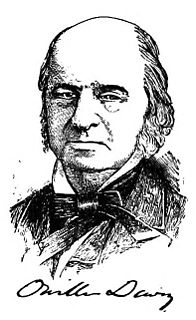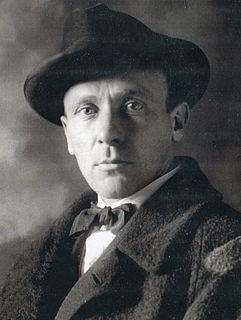A Quote by Orville Dewey
A man seems never to know what anything means till he has lost it; and this I suppose is the reason why losses--vanishing away of things--are among the teachings of this world of shadows.
Related Quotes
I was very young when I prepared those prints. I suspect the reason I couldn't celebrate the floating world was that I couldn't bring myself to believe in its worth. Young men are often guilt-ridden about pleasure, and I suppose I was no different. I suppose I thought that to pass away one's time in such places, to spend one's skills celebrating things so intangible and transient, I suppose I thought it all rather wasteful, all rather decadent. It's hard to appreciate the beauty of a world when one doubts its very validity
I live here among the ignorant like a lost man in fact like one whom the rest seems careless of having anything to do with — they hardly dare talk in my company for fear I shoud mention them in my writings & I find more pleasure in wandering the fields then in mixing among my silent neighbours who are insensible of everything but toiling & talking of it & that to no purpose.
What the art historians had forgotten is that in Chinese, Japanese, Persian, and Indian art, they never painted shadows. Why did they paint shadows in European art? Shadows are because of optics. Optics need shadows and strong light. Strong light makes the deepest shadows. It took me a few years to realize fully that the art historians didn't grasp that. There are a lot of interesting new things, ideas, pictures.
You can lose your way groping among the shadows of the past. It's frightening how many people and things there are in a man's past that have stopped moving. The living people we've lost in the crypts of time sleep so soundly side by side with the dead that the same darkness envelops them all. As we grow older, we no longer know whom to awaken, the living or the dead.
I think it's much more interesting to live not knowing than to have answers which might be wrong. I have approximate answers, and possible beliefs, and different degrees of uncertainty about different things, but I am not absolutely sure of anything. There are many things I don't know anything about, such as whether it means anything to ask "Why are we here?" I might think about it a little bit, and if I can't figure it out then I go on to something else. But I don't have to know an answer. I don't feel frightened by not knowing things, by being lost in the mysterious universe without having any purpose - which is the way it really is, as far as I can tell.
Conversion is not, as some suppose, a violent opening of the heart by grace, in which will, reason and judgment are all ignored or crushed. The season is not blinded, but enlightened; and the whole man is made to act with a glorious liberty which it never knew till it fell under the restraints of grace.































